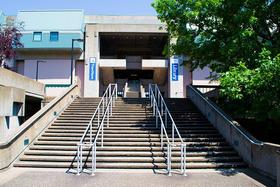Years ago, community college students were most likely to transfer to state colleges or universities. But today, community college graduates are increasingly found at private and highly selective four-year colleges.
Experts say the change is likely a result of increased recognition of the value of a diverse student body, the pressure that some small colleges are feeling to bring in tuition-paying students during this economic downturn, and awareness from college administrators that community college transfer students often bring a special set of strengths with them to four-year institutions.
Why Private Colleges and Universities are Recruiting Community College Students
Increasing Diversity
University of Virginia sociology professor Josipa Roksa tells the USA Today that selective private colleges specifically recruit community college graduates because these transfer students can often help with their campus diversity “in terms of race and socioeconomic status.
Tatiana Melguizo, an education professor at the University of Southern California, says that her university has been working hard to increase its population of minority students and that USC has found that accepting transfer students is a good way to accomplish the goal. The university, Melguizo tells USA Today, has found that “Community college transfers [are] the best deals. They're motivated, they're more likely to graduate, and they're relatively cheap" for the college to educate.
Seeking Tuition Revenue
Financial considerations may also be driving the surge of private institutions that are courting community college transfers. Small private colleges that depend largely on student tuition to stay afloat are finding that the current recession is hurting their bottom line and that community college transfers may be a previously overlooked source of tuition.
For some, community college graduates and private colleges appear to be a match made in heaven. State budget crises are forcing public universities to turn away deserving community college students, and private colleges and universities are benefiting from the resulting surge in their own enrollments.
In November 2009, the LA Times reported that a number of California’s private colleges are attempting to snag many students who have been turned away from the doors of California’s state university systems through “savvy marketing and, in some cases, special deals.” Despite the recession, private colleges are, according to the LA Times, increasing the amount of financial aid they are offering.
These private schools are also reminding prospective students that although a public state university may seem cheaper on the surface, it might end up costing more if over-enrolled classes mean that a student cannot complete a degree in the usual two or four-year timeline.
This video offers some hints with transferring from community college to 4 year institutions.
Recognition of Community College Students’ Strengths
Rod Risley, executive director of community college honor society Phi Theta Kappa, argues that while financial considerations may be spurring a large part of the recruitment efforts, hard-working community college students should also recognize the trend as a complement to their academic efforts and abilities. Risley says that “the persistence among community college students at these four-year institutions is very high,” and that colleges may be motivated to recruit community college transfers because experience has shown that they are successful as juniors and seniors.
Bad News for State Colleges?
The increasing vigor with which private colleges and universities are recruiting talented community college students has some public colleges and universities worried. Speaking to the City University of New York (CUNY) Newswire, Karlyn Koh honors program director at New York City’s LaGuardia Community College, said that “There is a brain drain with regards to our high-achieving and highly motivated community college students. The private colleges are just eating them up.” The article reports that Koh and other administrators in the CUNY system are pushing for increased efforts aimed at keeping the most talented and high-achieving community colleges in the city college system.
But despite the fact that competition for the best students can be fierce, private school representatives maintain a friendly tone in their analyses of the current economic climate. Richard Vos, vice president and dean of admission and financial aid at Claremont McKenna College, told the LA Times that "We are not trying to capitalize on the unfortunate budget woes of the state of California,” and that he wouldn’t want "to hit a man when he's down."
The trend towards more aggressive recruiting of community college graduates will likely be good news for those students who hope to transfer to four-year institutions. Community college graduates with strong academic records will be able to examine the financial and academic resources that prospective colleges, both private and public, have to offer, and choose the best option available.
Questions? Contact us on Facebook. @communitycollegereview















